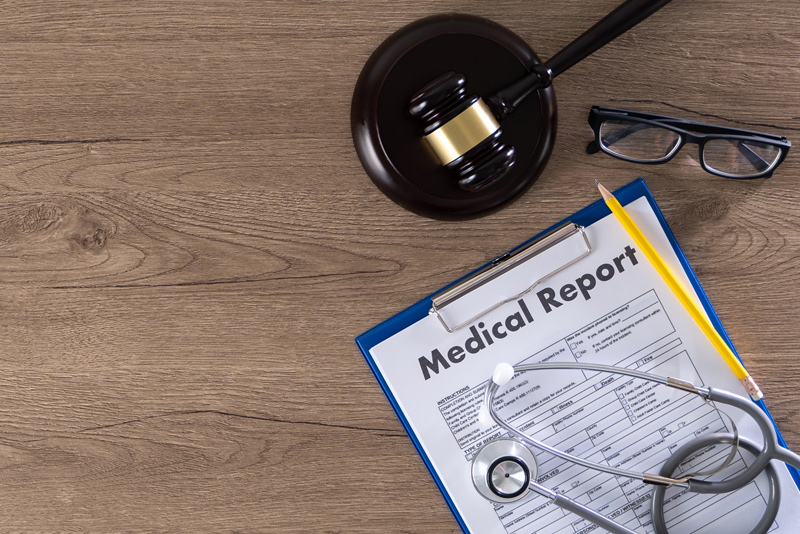The patient medical record is a document that is clinically as well as legally significant. It contains valuable data about a patient’s medical history and the various clinical encounters he/she had. This data is required to plan the ongoing care of the patient. As a legal document that can serve as proof of the care provided, the medical record is used for purposes such as medical claims review for payers. The medical record must be appropriately created and properly maintained so that it can act as successful defence in case a lawsuit arises, and also help respond effectively to any complaint to a regulatory body. Accuracy and legibility are vital for a medical record.
Important Considerations in Medical Records Management
When it comes to medical records management, the important considerations are how a medical record may be used in possible medical malpractice lawsuits, and who should have access to the medical records among others. Now, there is also the growing concern of insurance fraud – the important questions being whether the medical record contains adequate information that would justify the bill for provided services; and whether the services provided were appropriate for the patient’s condition. If the required standards are not met, the insurance claim could be denied or delayed.
While the medical records are the primary business records of the healthcare providers, they are confidential in the sense that the information contained therein is highly sensitive. As any company providing medical records services knows, most state legislatures have enacted medical privacy laws that govern the release of medical records. Existing state and federal privacy laws become highly relevant when considering the medical record as a business record that can be used for legal discovery. Typically, in cases other than those brought by the patients themselves, medical records are protected from discovery unless the plaintiff can demonstrate compellingly why the records are necessary to prove the case. Though maximum effort is made to protect patients’ confidential information, in instances such as a Medicare fraud case, the medical records will be discoverable.
Legal Importance of the Medical Record
In personal injury cases, the attorney’s first job is to review the medical records, preferable with the support of a medical chart review company. In medical malpractice cases, the entire case hinges around the medical chart of the patient. The medical malpractice/injury attorney would be looking for particular negligent acts, as well as the general quality of the record. Given the importance of the medical chart as a legal document, it is vital that providers maintain complete, legible, and competently kept medical records. if it isn’t, it will be taken as the healthcare provider’s failure.
Illegible medical records can be damaging to the provider. When records are illegible, it becomes very difficult to find the necessary information. This in turn puts the physician who made the entry in a poor light and as unprofessional. To ensure that the records are legible, the best course is to dictate the notes and record them on a pocket tape recorder and have it transcribed accurately later on, but it should be done daily. The transcription should be entered into the chart also on a daily basis.
Another thing to note is to be consistent in record keeping. This will help increase the medical chart’s credibility and vouch for the professionalism of the provider. Medical practitioners should not alter their medical records because any correction made could invalidate the record. The chart should be complete without any missing notes. If any entry is to be changed, the practice to follow is to draw a single line through the entry ensuring that the original entry is clearly legible. Then the new entry can be made above or next to the old entry with the date of the new entry and the initials of the clinician making the entry. The new entry should also include the reason why it is included – such as newly available lab test details, addenda to an earlier note, a supplemental note and so on.
Retaining the Medical Records
Regarding retaining the medical records, the ideal thing is to retain all the records indefinitely. However, this could be impractical and expensive while also restricting access to currently active records. So, experts recommend having a records retention policy that would be economical while also allowing easy access to current medical records. According to https://biotech.law.lsu.edu/map/RetentionofRecords.html, the records of any patient seen in the last two years are to be considered active unless the patient has died. The practitioner could consider putting the patient’s records into less accessible storage while retaining the cover sheet of the chart in the event that the patient is seen again. This cover sheet will enable urgent care to be provided either in the office or the emergency room before the complete medical chart can be retrieved.
Medical records should be protected well so as to prevent loss through natural disasters, theft and so on. If a facility maintains paper records, these can be stored in fire-resistant filing cabinets that are kept locked. All computer records must be backed up to removable media daily and ideally there should be at least two sets of backup media. Some medical facilities store a duplicate backup on a remote site to prevent complete loss of information. Healthcare providers must take extra care to safeguard the medical records in their custody, with full awareness of their significance as important medical and legal documents.




